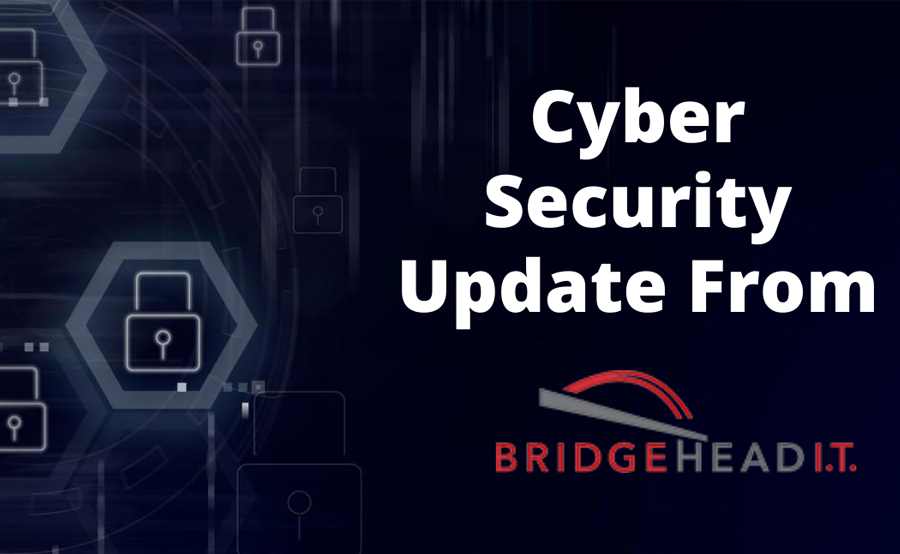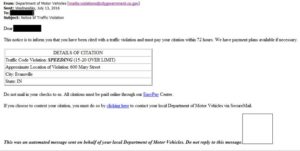NOTICE: Prevalent Phishing Scam Circulating in and around San Antonio, Texas

The prevalence of email scams continues to be an issue as new ones appear every day. Law enforcement agencies from dozens of municipalities are reporting a trending phishing scam involving faking traffic violation tickets.
Cybercriminals send a legitimate-looking email coming from their city’s traffic enforcement division or municipal court. The email claims a vehicle registered under the recipient’s name has been cited for a moving violation. Frequently the email claims the citation was the result of speeding or running a traffic light caught on camera. Recipients are warned that they need to pay the fine or risk having a warrant issued for their arrest. The email includes a link to where recipients can pay the fraudulent fine.
Users who fall victim to this scam may have their computer infected with malware and have their payment information stolen.
Phishing emails are continually changing, but they often have some common themes. Be wary of all emails from unknown sources, but pay special attention to any emails that:
- Claim your account has been flagged for suspicious activity or log-in attempts.
- Suggest there is a problem with your payment information or account.
- Ask you to click a link to confirm personal information.
- Include an unexpected invoice.
- Want you to click on a link to make a payment.
- Say you’re eligible to register for a government refund.
- Offer a coupon for free stuff.
See an example of one of these fraudulent emails below:

If you receive an email like this or any other suspicious email, please delete it and notify your IT help desk. Avoiding email scams requires constant vigilance. Remember not to open any unknown attachments or click any unknown links. If you are unsure about an email, you should always call the original sender or your IT support team to verify its validity.
A Cybersecurity Update from

